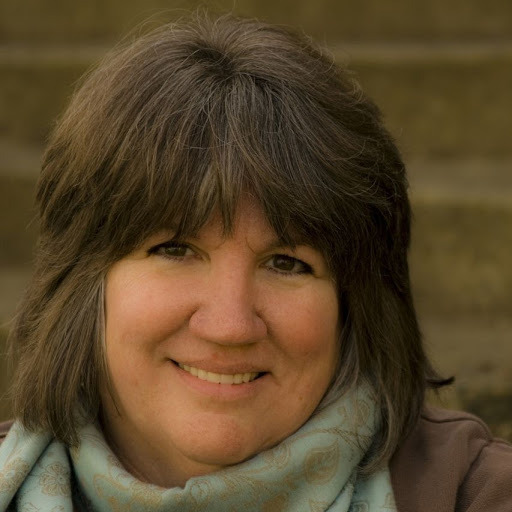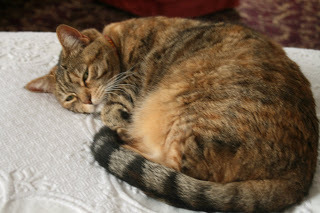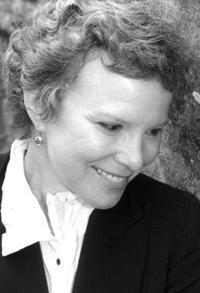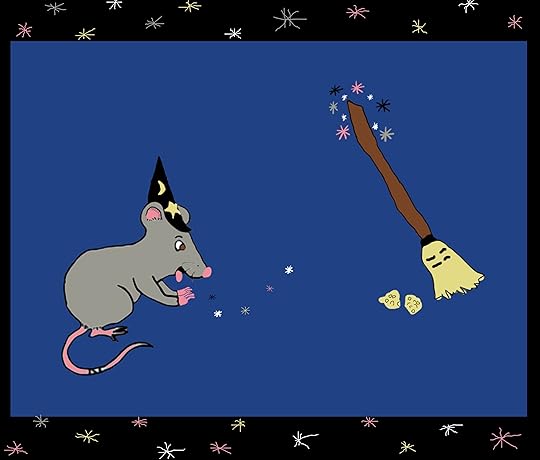Susan Rich's Blog, page 41
February 16, 2013
Thank You to The Monarch Review
 Stephen Bartholomew - artist
Stephen Bartholomew - artistOne of my favorite valentines arrived this year in the shape of a poem accepted and posted at The Monarch Review --- a gorgeous print (and online) journal launched in Seattle just a couple of years ago.
My poem "What Hodan Tells Me" began almost a decade ago when I was working on the Somali Voices Project. I was a co-founder of the Somali Rights Network that one of my former students, Mohamud Esmail, had started with a friend.
In an effort to bring attention to the Somali community in the Seattle area, I decided to interview Somali people living in the area. I published the poems from this project in my book Cures Include Travel. Recently I found my notebooks from that time (never throw out old notebooks) and I found these quotes from Hodan about her United States Embassy interview in Kenya.
WHAT HODAN TELLS ME
Everyone knows
for $80 you can become a Somali citizen
with a blue passport
a diplomat for not much more.
The American Embassy woman confides,
“You are going to suffer culture shock
but The Bold and Beautiful will help.”
To continue reading, check out The Monarch Review
Published on February 16, 2013 03:00
February 14, 2013
Valentine's Day is the Last Day for Winter Prices: Give Yourself the Gift of Poets on the Coast
 The ideal place to write is right here
The ideal place to write is right hereWe have 3 spaces remaining for Poets on the Coast: A Weekend Writing Retreat for Women on September 6-8, 2013! We also have 3 spaces left in our manuscript workshop class.
Prices go up after February 14th, so if you're interested, check it out today. Click here for more info.
You can sign up here. Also, it's cheaper to pay by check than PayPal, just drop me a note at srich18(at) gmail.com and I'll hold your place.
Published on February 14, 2013 00:00
February 13, 2013
International Poets Take Note: The Human Journal is Open

This is just to announce that I'm on the editorial team of a new journal called The Human Journal that is based in Istanbul, Turkey. My friend Mustafa Bal has been the energy behind seeing this beautiful ideal become a now near reality.
So whether you live in Asia or South America, Australia or Zimbabwe please submit your poems. We are asking for no more than three poems (five pages maximum) sent at one time. Our first issue comes out in June --- don't you want to be part of it?
Part of our manifesto reads as follows:
The Human is a refereed academic journal of humanities, social sciences, and arts, which is dedicated to intellectual discussion of diverse aspects of human experience.
The Human is an entirely independent journal that has no ties to any associations or institutions, solely prioritizing independent dissemination of qualified knowledge and experience.
Works published in The Human aim to establish, question, analyze, problematize, and discover original methods of thoughts to contribute to solutions of current and deep-rooted human problems in the world.
Works published in The Human also seek after the truthful and the beautiful.
 More ideas and information on this soon but for now, you can check out the wonderful web site.
More ideas and information on this soon but for now, you can check out the wonderful web site.
Published on February 13, 2013 21:53
February 9, 2013
How Penguins Do It --- Testing the Waters
 Many years ago, when I quit my job with Amnesty International USA to travel across the country to a place called the Pacific Northwest, a friend in Boston told me this story. When a group of penguins come across a body of water they need to cross, they cluster together and push their "leader" off the ledge. If all goes well, the rest dive in. If instead, the lead penguin gets eaten by a predator, the others find an alternate path. That cozy pack they travel in therefore has an alternative motive.
Many years ago, when I quit my job with Amnesty International USA to travel across the country to a place called the Pacific Northwest, a friend in Boston told me this story. When a group of penguins come across a body of water they need to cross, they cluster together and push their "leader" off the ledge. If all goes well, the rest dive in. If instead, the lead penguin gets eaten by a predator, the others find an alternate path. That cozy pack they travel in therefore has an alternative motive.My friend told me this story because I was quitting a perfectly good job to start an MFA program in poetry. It didn't make any logical sense. Except to me. A few short months later he left his job with Goldman Sachs to become a Peace Corps Volunteer in West Africa. I know that leaving my job with Amnesty was one of the best decisions of my life. I can only hope his dive ended up half as successful.
So often as we (I) get older the diving into new experiences becomes more difficult to do. There seems a better chance of a shark or polar bear in the water below. But I also know that if I don't take chances in my writing and in my life, the alternative is to feel stymied. I think my belated New Years resolution is to take more risks. I'm not as interested in the high dives as I am in the internal reckonings. I just know life is short and I don't want to regret what I didn't do in mine.
Published on February 09, 2013 10:15
February 8, 2013
Life as a Midlife Poet : How Did This Happen?
 Meet Anna, poet of wedding poemsOkay, I am not so old that I can remember medieval times. Still it is true that I have hit middle age. I can no longer enter "emerging poet" contests. For better or worse, I have emerged. This is not easy to admit. I do not feel wise enough or mature enough to have lived this long. How did it happen?
Meet Anna, poet of wedding poemsOkay, I am not so old that I can remember medieval times. Still it is true that I have hit middle age. I can no longer enter "emerging poet" contests. For better or worse, I have emerged. This is not easy to admit. I do not feel wise enough or mature enough to have lived this long. How did it happen?There are a few positive notes that I want to share about growing older. In the past three years, my friend Kelli Russell Agodon and I have created Poets on the Coast: A Writing Retreat for Women. Every September we meet at the Sylvia Beach Hotel in Nye Beach, Oregon and so far, a group of cool and varied poets come along, too. We have women join us from as far away as Maryland and Virginia, Southern California and Canada. Our ages span from 20 something to seventy something -- but who's counting?
A few years ago I was invited to curate the Jack Straw Writers Program and our group of poets, novelists, and non-fiction writers are still meeting together and sharing work several years later.
In other words, instead of needing a writing mentor, I have become one. Another surprise.
Recently, I've met a few people who I would consider ex-poets. Once they wrote poetry, now they do real estate or knit. I'm always slightly afraid of these former wordsmiths. I wonder if that will happen to me someday. I think not but it's possible.
I published my first poem at 21 while I squatting in an Edinburgh flat learning to be a writer. The next poem was ten years later and perhaps better marks my taking myself seriously as a writer. And as an adult.
Here's what I've learned about writing in my twenty-something years of sending poems into the world to journals, calendars, art galleries and in some cases, books.
1. You need writer friends. Without Poets on the Coast, my poetry group, and the fantastic literary community in the Seattle area, I don't know that I would be inspired to try new forms and new concepts in my work. It really helps to have other writers to share ideas with over time.
2. Cross-training helps. For almost two years I've been working on an anthology of essays titled The Strangest of Theatres: Poets Writing Across Borders with Catherine Barnett, Jared Hawkley, Brian Turner, and Ilya Kaminsky. Conceptualizing, writing, and editing a book is an enormous undertaking.
And while it certainly took time away from writing poems, the book allowed me to hone a new skill. Working with a team of writers and copy editors and fact checkers and other folks taught me a great deal of how much work goes into creating an anthology. It's good to try new things.
3. Providing inspiration and mentorship to other poets is crucial. While I teach college students full-time, only a small handful are interested in becoming writers, still less are interested in poetry. However, teaching for the Artists Trust Edge Program, the Antioch MFA program, and Poets on the Coast allows me to feel that I'm giving back to my community. In turn, I receive incredible warmth and support from the poets I work with. It's a crucial part of the process.
4. Always experiment; write new things. In my writing life, I've written grants for projects I feared were too difficult for me because if the money came through, I'd have to "woman up" to the task. I'm in that process right now and while it's difficult, it stretches me as a writer and that's the only way I will keep interested in what I'm doing. I have a short attention span. I need new ways of conceiving poems, new ideas. Some will fail; that is what every writer confronts. Every single one of us.
5. Create new ways to bring poetry to the public. This year as part of a citywide festival I organized the Improbable Places Poetry Tour at the Alexis Hotel. With the help of Angie Vorhies, Harold Taw, Kelli Agodon and Elizabeth Austen we created an event featuring hotel poems taking place in a hotel suite. I hope to do this once a year -- bring poetry outside of schools and bookstores to where people who are not poets can experience the real power of poetry.
6. Cures include travel. For me, travel is my drug of choice. Even bad trips get you out of your own skin. Living in West Africa as a Peace Corps Volunteer in my mid twenties is what allowed me to write in the first place. I needed to get out of my own head and experience a world beyond Boston, Massachusetts in order to become real to myself. I believe it's still true.
7. Don't be afraid to be wacky. The picture up top comes from a poet by the name of Anna Whitehouse whose web site states she will write a medieval wedding poem for anyone that asks her. Closer to home, here in Seattle we have the Typing Explosion and Public Health Poems with Rachel Kessler and friends. I love the idea of poems in public bathrooms featuring the playful importance of hand washing. Rachel will be bringing her project to my college this April. Wackiness is the way!
Published on February 08, 2013 11:27
February 5, 2013
Welcome to Guest Blogger Patty Kinney
Today I'm pleased to introduce Patty Kinney who writes about her first writer's retreat and much more.

Meet Patty Kinney: poet, essayist and woman extraordinaire. Patty and I first met nearly ten years ago when she was my student at the Antioch MFA program in Los Angeles. I knew then that she was an incredible spirit and the years since have only made that more clear.
About a year ago Patty got back in touch with me through the magic of Facebook. Since then I've had the pleasure to see Patty at several literary events and as part of different classes I have taught. Her poems are honest, humorous, and leave me wanting more. She is a poet whose name I believe you will come to know.
Patty's poems and essays have appeared in The Sun, hipMama, Crab Creek Review, OccuPoetry, Poets Against War and other journals and anthologies. Patty is a 2013 EDGE program participant.
Here's Patty's take on allowing herself the gift of a first writing retreat.
I was not a person who liked being around a bunch of women before this experience.
Now, I embrace it.
I do a lot of lucid dreaming. My desires inform my dreams. Two years ago when I yearned to travel to Newport, Oregon to attend Poets On The Coast, a writing retreat for women, I just couldn’t swing it. Life got in the way. Still, it lodged itself like a sliver in my subconscious.Honestly, I wasn’t crazy about spending the weekend with a bunch of strangers, especially women. But the dreams didn’t stop; the sliver festered.
Last September, when the retreat was in it’s second year, I became a Poet On The Coast.
My drive from Olympia to the Oregon Coast took place on the hottest day of the year. I left behind a very ill mother and a sunburned child. I arrived early, happy to discover an Irish Pub near the 100 year old Sylvia Beach Hotel. I needed a Guinness to brave all these women.
An hour later, I checked in to the Neverland of writerly hotels. Each room is named for writers, novelists, poets - dead and alive. I lugged by vintage suitcase to the Alice Walker room, opened the door and cried. I’d been to Uganda twice. The room was a near replica of a cabana I stayed in while on safari in East Aftica. I poked around other rooms (they leave them open before guests arrive). I was bookended by John Steinbeck and Virginia Woolf. I checked out Colette (posh), Mark Twain ( stately), Dr. Seuss (whimsical).
When it came time to meet the women, I took the stairs one by one. My feet moved so slowly I was sure they were drugged. As I reached the Mark Twain room, other women began to filter in. Renee from Canada, Angie from California, Amber from West Virginia - two dozen in all. The entire Pacific Northwest and beyond represented. We were recently homeless women, lawyers, teachers, nurse practitioners. We wore bare feet, Birkenstocks, slippers and Italian sandals. I was immediately intimidated. My inner child sucked it’s thumb.
As the women introduced themselves I felt my breathing slow. I slid out of my sandals. The girls were a smorgasbord. Every level of writing, every level of nice, every level of accepting.
 Meet Shelly, Cat-in-Residence
Meet Shelly, Cat-in-Residence
I’d made plans to go to dinner with another poet from Olympia but as I returned to my room to get ready for dinner I found I was weeping. A lot. I wept for the gift I’d given myself - time away to write. I wept for not giving it to myself sooner. I wept for the other writers/poets and the snippets of their work I’d heard in their self-introductions. I wept because there were petunias, and cosmos, and echinacea in the welcome garden as I entered the hotel. I wept because there is a hotel cat, Shelly. Mascara-smeared, I told my friend I could not join her for dinner. The hotel was quiet that night. I imagine I wasn’t the only one filled with gratitude at pulling off a getaway. I was Bonnie, not a Clyde in site.
The rest of the weekend is a beautiful blur. There were new poems written from wonderful writing exercises, yoga with Kay, the most gentle spirit I’ve ever met (I had to do it sitting in a chair), wine and snacks a plenty, a fresh five course gourmet meal, goal setting, Mostly I remember the women. Their words, their smiles a stick writing in the sand, I’ll see you next September.
* * *

If you are interested in joining Poets on the Coast 2013, let us know soon. There are only 3 spots left! Save on registration fee if you register on or before Valentine's Day!

Meet Patty Kinney: poet, essayist and woman extraordinaire. Patty and I first met nearly ten years ago when she was my student at the Antioch MFA program in Los Angeles. I knew then that she was an incredible spirit and the years since have only made that more clear.
About a year ago Patty got back in touch with me through the magic of Facebook. Since then I've had the pleasure to see Patty at several literary events and as part of different classes I have taught. Her poems are honest, humorous, and leave me wanting more. She is a poet whose name I believe you will come to know.
Patty's poems and essays have appeared in The Sun, hipMama, Crab Creek Review, OccuPoetry, Poets Against War and other journals and anthologies. Patty is a 2013 EDGE program participant.
Here's Patty's take on allowing herself the gift of a first writing retreat.
I was not a person who liked being around a bunch of women before this experience.
Now, I embrace it.
I do a lot of lucid dreaming. My desires inform my dreams. Two years ago when I yearned to travel to Newport, Oregon to attend Poets On The Coast, a writing retreat for women, I just couldn’t swing it. Life got in the way. Still, it lodged itself like a sliver in my subconscious.Honestly, I wasn’t crazy about spending the weekend with a bunch of strangers, especially women. But the dreams didn’t stop; the sliver festered.
Last September, when the retreat was in it’s second year, I became a Poet On The Coast.
My drive from Olympia to the Oregon Coast took place on the hottest day of the year. I left behind a very ill mother and a sunburned child. I arrived early, happy to discover an Irish Pub near the 100 year old Sylvia Beach Hotel. I needed a Guinness to brave all these women.
An hour later, I checked in to the Neverland of writerly hotels. Each room is named for writers, novelists, poets - dead and alive. I lugged by vintage suitcase to the Alice Walker room, opened the door and cried. I’d been to Uganda twice. The room was a near replica of a cabana I stayed in while on safari in East Aftica. I poked around other rooms (they leave them open before guests arrive). I was bookended by John Steinbeck and Virginia Woolf. I checked out Colette (posh), Mark Twain ( stately), Dr. Seuss (whimsical).
When it came time to meet the women, I took the stairs one by one. My feet moved so slowly I was sure they were drugged. As I reached the Mark Twain room, other women began to filter in. Renee from Canada, Angie from California, Amber from West Virginia - two dozen in all. The entire Pacific Northwest and beyond represented. We were recently homeless women, lawyers, teachers, nurse practitioners. We wore bare feet, Birkenstocks, slippers and Italian sandals. I was immediately intimidated. My inner child sucked it’s thumb.
As the women introduced themselves I felt my breathing slow. I slid out of my sandals. The girls were a smorgasbord. Every level of writing, every level of nice, every level of accepting.
 Meet Shelly, Cat-in-Residence
Meet Shelly, Cat-in-ResidenceI’d made plans to go to dinner with another poet from Olympia but as I returned to my room to get ready for dinner I found I was weeping. A lot. I wept for the gift I’d given myself - time away to write. I wept for not giving it to myself sooner. I wept for the other writers/poets and the snippets of their work I’d heard in their self-introductions. I wept because there were petunias, and cosmos, and echinacea in the welcome garden as I entered the hotel. I wept because there is a hotel cat, Shelly. Mascara-smeared, I told my friend I could not join her for dinner. The hotel was quiet that night. I imagine I wasn’t the only one filled with gratitude at pulling off a getaway. I was Bonnie, not a Clyde in site.
The rest of the weekend is a beautiful blur. There were new poems written from wonderful writing exercises, yoga with Kay, the most gentle spirit I’ve ever met (I had to do it sitting in a chair), wine and snacks a plenty, a fresh five course gourmet meal, goal setting, Mostly I remember the women. Their words, their smiles a stick writing in the sand, I’ll see you next September.
* * *

If you are interested in joining Poets on the Coast 2013, let us know soon. There are only 3 spots left! Save on registration fee if you register on or before Valentine's Day!
Published on February 05, 2013 19:01
February 2, 2013
A Rare Chance to Work with Carolyn Forche at Hedgebrook!
 Caroyln Forche teaches at Hedgebrook this MarchFor me, a week at Hedgebrook with Carolyn Forche was a kind of poetry heaven. On an island off of Washington State surrounded by tall trees and smart women, I spent seven days in December 2010 writing poems and getting to know a poet who had been my childhood hero.
Caroyln Forche teaches at Hedgebrook this MarchFor me, a week at Hedgebrook with Carolyn Forche was a kind of poetry heaven. On an island off of Washington State surrounded by tall trees and smart women, I spent seven days in December 2010 writing poems and getting to know a poet who had been my childhood hero.Hedgebrook is a writing retreat (or an advance, as Gloria Steinem says) for women writers at any stage in their career. I first went to Hedgebrook in 1995 and it changed my life. It can change yours.
There are only a few spots left for Carolyn's class this coming March. Click here to find out more about the one week retreat and Hedgebrook. Feel free to post questions below. I'm happy to be of help.
Published on February 02, 2013 08:30
February 1, 2013
Quick! Before They're Gone -- Free Posters by Jessica Helfand
 Designed by Jessica HelfandIf you are a teacher, community worker, or person who has a public space in the world, here is an absolutely free poster for National Poetry Month offered by the Academy of American Poets. Each year I tape the poster to my office door but this year, I'm going to frame it. I love this poster created by Jessica Helfand. Helfand is a graphic designer who seems to have a creative obsession with old scrapbooks. Thank you Jessica Helfand for creating such a gorgeous poster -- the best one yet.
Designed by Jessica HelfandIf you are a teacher, community worker, or person who has a public space in the world, here is an absolutely free poster for National Poetry Month offered by the Academy of American Poets. Each year I tape the poster to my office door but this year, I'm going to frame it. I love this poster created by Jessica Helfand. Helfand is a graphic designer who seems to have a creative obsession with old scrapbooks. Thank you Jessica Helfand for creating such a gorgeous poster -- the best one yet.Click on this page and watch the 2 minute video on the right hand side where Helfand narrates the scrap book of Marybelle Harn a music student in Cincinnati, Ohio, 1875. The book includes meticulously kept old wrappers from the chocolates and sweets she favored. "More sustaining than meat" is the slogan of the Hershey's company in the 19th century. Who knew?
My college is planning a month of readings, poetry broadsides, panels, and maybe videos all celebrating poetry in our community and in the world. It's going to be a busy spring!
Published on February 01, 2013 18:36
January 28, 2013
New Poet for Me: Jeff Hardin

I found this poem on Verse Daily after seeing Jeff Hardin's name on the upcoming list of poets for the new online journal, The Heron Tree. The poem does an excellent job of matching form with content. As the content wanders from a mouse to a fatwa, to a grass blade; the form meanders along with short lines that move the reader down the page in a leisurely fashion. The poem moves the way a relaxed mind moves ---- from image to image, with no fanfare, no drama. But what I love most about this poem happens in the third to last line. A line I might very well have to po-jack.
Lightweights---- by Jeff Hardin
Even in these hostile times,
I sort of prefer those people
others consider
lightweights.Those who,
during the meeting,
doodle in the margins,
inking out long-stemmed daisies
with words rising up
out of the stamens.Watch how they're
not really ruffled
when referred to
as loafing.Their tenacity
at not being
too insistent—
now that's a feat.A mouse could run off
with their crumbs
and they wouldn't flip out,
call in a search party,
order a fatwa.I imagine they know already
that plot is simply
what it is
—mostly a distraction—
that what matters
hasn't happened yet,
the realm of the possible,
which sometimes
doesn't occur.While others strategize,
organize coalitions,
they fiddle with a grass blade,
inspecting its shape.When they speak up,
it's to ask
some loll-about question
already drifting
right out of the room.
Published on January 28, 2013 02:00
January 27, 2013
The Art of Rejection (for Poets and Editors)

Has this happened to you? If so, read on! There seems a good deal of talk going round these days on how to deal with rejection poetry style. I just came across this blog post at Indiana Review on the 5 Marks of Oft-rejected Poems and found it interesting. Stale language, cliches, weak endings --- all good points to be reminded of.
A few weeks ago at the Book of Kells, Kelli Russell Agodon posted concerning the awkward situation when a journal makes a personal request to the poet for poems and then rejects her (or him) with a faded rejection slip or a mass email. Yes, it's nice to be asked. And yes, it hurts twice as much as a "normal" rejection does because the editor encouraged you. In other words, the rejection becomes much more personal.
Ten years ago I heard Naomi Shihab Nye talk about this exact issue at a workshop at Richard Hugo House. She implied that the better known a poet is, the more this will happen. And so, yes, it's a first class problem. Still, Kelli's point is worth repeating: editors need to consider what they are doing and not merely encourage poets to submit because they want to raise their submission numbers. For me, "the ask" is very much like saying: "Let's go out on a date but know that I will blow you off if someone sexier is available that night. Hope that's OK."
Once upon a time, a famous editor wrote to me (a personal and cheerful note) asking me to submit my book manuscript to a contest her magazine was running. I wondered why she would ask such a thing as she had not taken any of my poems in the years I had been sending to her. Could it be a $25 reading fee? Were submissions down?
Here's what I try to remember so that rejection doesn't win -- and I don't curse the editor (for too long)
1. Most oftentimes an editor is just another writer -- just like you. She has her own likes and dislikes and they may or may nor include your work. They are not an ultimate judge of your work.
2. A poem may go out 1-20 times before it finds a home. I try to keep track of how many times my poems go out into the world before they find publication. On average, I send a poem somewhere between 6 - 9 times before it is accepted. If this one magazine says no, there are many others to try.
3. There's a right match for my poem out there somewhere. As with any relationship, I want my poems to find a warm and loving audience. If a journal doesn't want my poem, my poem doesn't want to hang out there.
4. Most writers are rejected most of the time. This is a fact of life. It is also true that the more you submit your work, the better your chances of acceptance.
5. You have been accepted and you will be again. So some little start-up journal says no to a poem and the same poem is accepted by a prestigious national journal a few months later (it happens).
6. Take the opportunity to look at your rejected poems when they come back and see if they need some more revision. If they do, the editor just gave you a chance to make your work stronger, if they are fine as they are, send them somewhere else that very same day.
7. Be playful. Find a way to make submitting your work a game. I've written recently on how I play the license plate game when I submit poems. This allows me to focus on something other than the nation's top 10 journals.
8. Talk to friends. I have a friend who hears about my excitement over poetry acceptances and also receives emails when some little journal decides to email out rejections early on a Sunday morning. It really helps to have a poetry submission buddy to share high highs and low lows.
9. Take a break. If you are feeling a bit raw and a poetry rejection might be too much at this point (the grey of winter, the loss of a friend, too much work stress) just take a break from submitting and concentrate on writing. Writing poetry is a better use of your time than submitting poetry any day.
10. Tell me your story. I love hearing other rejection stories from poets and from editors. When I read for Ploughshares back in the early 1990's I remember a poet who wrote me (well, not me personally) about how he was sure I was nothing but a lowly intern (i was) and that he imagined me sitting in my bedsit somewhere thinking he was just a crazy man (I did). He told me his poems were better than I would ever understand. And yes, dear reader, I rejected him ~ and was glad he did not have my address.
Published on January 27, 2013 14:46



